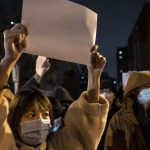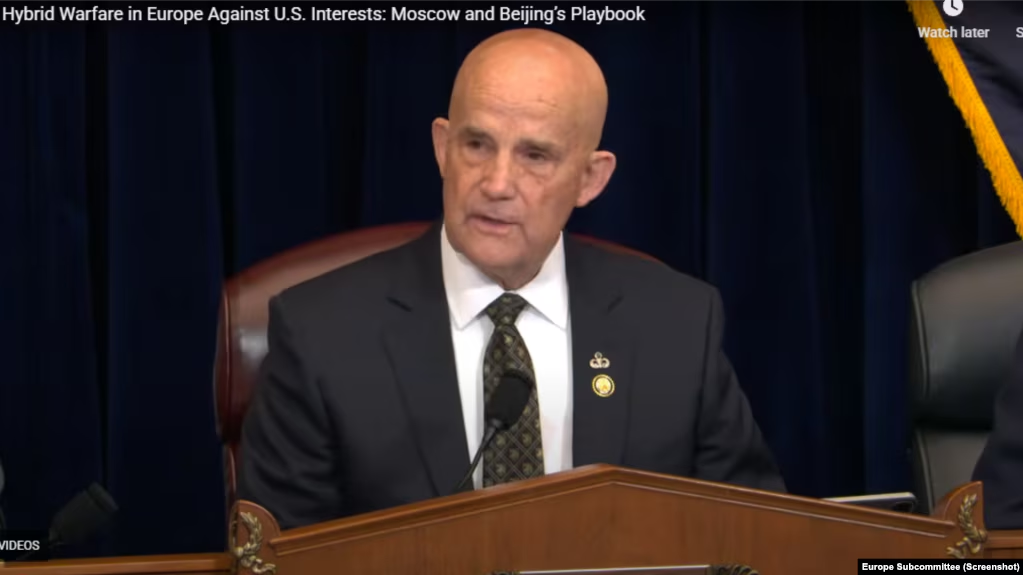2017-12-29

The West Kowloon terminus of a high-speed rail link that will connect Hong Kong to the southern Chinese city of Guangzhou is under construction in Hong Kong, Dec. 28, 2017.
AFP
China‘s decree that part of a high-speed railway station linking the former British colony of Hong Kong to its high-speed rail network will be subject to its laws has prompted a public outcry from the city’s legal profession.
Beijing’s rubber-stamp parliament, the National People’s Congress (NPC), said on Wednesday that it would extend Beijing’s authority to the high-speed rail terminus to enable a streamlined process for passengers boarding the trains in Hong Kong, despite of the city’s status as a separate immigration, policing, and customs jurisdiction.
The “co-location” arrangement has already been criticized as unconstitutional as a violation of Hong Kong’s mini-constitution, the Basic Law. Now the city’s Bar Association (HKBA) has weighed in with a detailed criticism of the NPC standing committee ruling.
“The integrity of the Basic Law has now been irreparably breached,” said a lengthy statement issued by the group on its website.
“The HKBA is appalled by the … Decision, which merely states that the NPC standing committee … ‘confirms’ that [the rail terminus plan] is consistent with the … Basic Law without stating how this is so,” the statement said.
“This plainly amounts to an announcement by the NPC standing committee that the [plan] complies with the Constitution and the Basic Law ‘just because the NPC standing committee says so,'” the HKBA said.
“Such an unprecedented move is the most retrograde step to date in the implementation of the Basic Law, and severely undermines public confidence in “one country, two systems” and the rule of law in [Hong Kong],” it said.
It also said the Hong Kong immigration department, not the mainland Chinese border police, should be in charge of entry and exit control checks for passengers entering and leaving the city, citing Article 154(2) of the Basic Law.
Articles in the Basic Law allowing Hong Kong to make certain arrangements to enable cross-border trade and economic links “do not authorize” the city’s government to act inconsistently with the rest of the law, the HKBA said.
Giving mainland Chinese authorities access to a part of the station to speed up the movement of passengers doesn’t mean Hong Kong should give up its jurisdiction over any part of its territory, it said.
“The … Decision is both wholly unconvincing and unsatisfactory in achieving its purported purpose, namely to provide a firm legal basis for … local legislation,” it said.
“The HKBA notes, with utmost concern and regret, that such a strong perception will surely impair and undermine the confidence of the local and international communities on the maintenance of the rule of law and the ‘one country, two systems’ policy in Hong Kong,” it said.
Previously, only Chinese laws entered into Annex III of the Basic Law have been eligible for implementation in Hong Kong.
‘Open to legal challenges’
Opposition lawmaker and barrister Tanya Chan, who heads a group protesting the rail terminus plan, agreed that the NPC standing committee decision can’t form the legal basis for legislation implementing the plan.
“If they pass legislation in Hong Kong without this legal basis, this could be open to legal challenges,” she warned.
Chan’s group has called on the government to clarify the legal basis for the proposed joint-immigration checkpoint.
It says that a failure to do so could delay the 26-kilometer (16-mile) rail link scheduled to open in late 2018.
The government has said it will table legislation to deliver on the rail terminus plan by the end of January.
The HKBA statement follows criticisms from a panel of legal experts, including human rights lawyer Philip Dykes and Hong Kong University law professor Johannes Chan, earlier this week, who warned that the rule of law in the city will be “threatened and undermined” by the ruling.
“The rule of law will be threatened and undermined if the clear meaning of the Basic Law can be twisted and the provisions of the Basic Law can be interpreted according to expediency and convenience,” the lawyers said.
The Chinese government’s argument that Hong Kong’s government has a duty to promote the development of tourism and transport doesn’t hold water, they said.
“It is obvious that such articles do not provide the basis for Basic Law to be disapplied in certain parts of Hong Kong,” they said in a statement. “[That] would be stripping different articles out of context and do violence to the solemnity of the Basic Law.”
‘No right to question’
But former Hong Kong justice secretary Elsie Leung said the Basic Law can’t be interpreted using Hong Kong’s common law system.
“The Basic Law is a constitutional instrument, it cannot provide for details,” Leung said in response to the HKBA statement.
“We already possess the power of the administration of the land, customs regulations and the regulations relating to entry and exit of travelers, so we already possess all the powers to enter an agreement with the mainland, and the Standing Committee of the NPC has confirmed that,” she said.
Meanwhile, Hong Kong administration official Ronny Tong warned it would be “very dangerous” for Hong Kong people not to recognize the supreme authority of the NPC standing committee.
“People have no right to question its controversial decision on the West Kowloon Station just because they hold different opinions,” Tong told local media.











